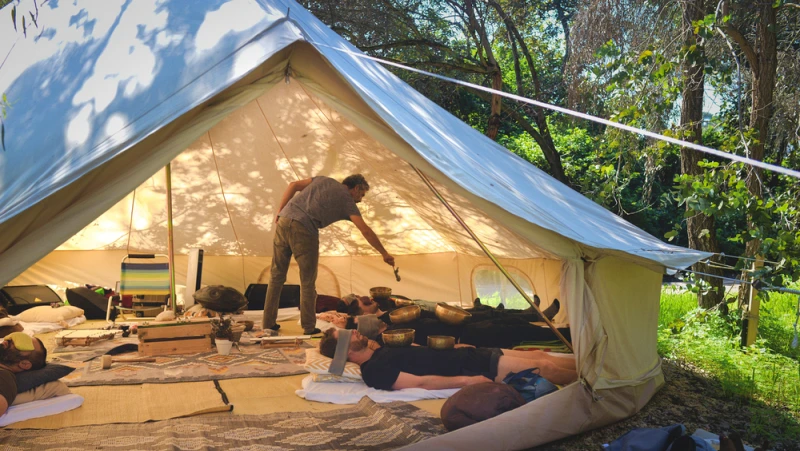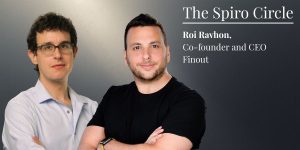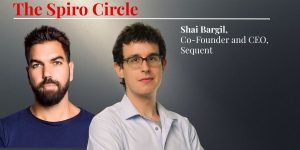Nestled amidst scenic trails and breathtaking natural landscapes, Healing Space Rishpon serves as a sanctuary for individuals grappling with the aftermath of war, personal tragedies, or life’s challenges. Dr. Ilana Kwartin, director of Healing Space Rishpon says, “Our center fills a crucial void. Israel is a country at war, but even more so, a country with a deeply fragmented approach to mental health.”
Dr. Kwartin, a seasoned lawyer and Gender Studies graduate with a strong background in social activism, found herself taking the helm of the center following the October 7th events. “I knew immediately that I needed to channel my entire skillset into rebuilding the nation I love so dearly—for my children, grandchildren, and community,” she says passionately about the mission she embraced.
“Trauma is Imprinted on the Body”
Even before October 7, Israel’s healthcare system was struggling to handle the volume of mental health requests. The war only exacerbated the situation, pushing the system to a breaking point. This urgent need led to the creation of Healing Space Rishpon—a place dedicated to addressing trauma through the synergy of body, mind, and nature.

The center offers support to diverse populations, including soldiers, first responders, medical teams, bereaved families, Nova festival survivors, and residents of the communities surrounding Gaza—all those directly or indirectly impacted by recent events. The center’s philosophy of care is rooted in the interconnectedness of body and mind. “Trauma is imprinted on the body, so it must be released through the body,” explains Dr. Kwartin. “While the center primarily focuses on war-related trauma, its methods extend to various traumatic experiences.”
The center provides a wide array of therapeutic approaches, including trauma-informed yoga, massage, reflexology, sound healing, acupuncture, homeopathy, naturopathy, and more. “We employ what some call ‘alternative medicine,’ but these are methods that have been known for generations,” Dr. Kwartin asserts. “Without these complementary approaches, we cannot rise to the immense challenges our country will likely face in the coming decades.”
The Power of Nature and Community
One of the center’s defining characteristics is the atmosphere it fosters. “The setting itself – nature and the profound connection it inspires – immediately allows visitors to breathe deeply and rediscover their inner potential,” says Dr. Kwartin. “Ultimately, healing comes from within; it is not something that can be imposed externally.”
The center also highlights the importance of community and shared experiences. Treatments are often conducted in group sessions, leveraging the healing power of human connection. “The group and communal setting enable participants to begin their journey here and continue it in their everyday lives,” Dr. Kwartin adds.

Dr. Kwartin believes any patient arriving at the center, is already a success story. To date, Healing Space Rishpon has treated over 16,000 individuals with the help of more than 140 therapists specializing in various methods. The center seamlessly integrates well-being and wellness, combining healing and care in a unique approach. “It truly is a one-of-a-kind model,” Dr. Kwartin explains.
The center’s impact is evident not only in numbers but in the profound transformations it brings to the lives of individuals. “People who suddenly manage to sleep through the night or regain sensation in parts of their bodies where they had lost it – these are moments that bring the light back into their eyes,” shares Dr. Kwartin. As far as she is concerned, that combination is key to the intense changes patients experience in their lives and in society as a whole.
Alongside its successes, Healing Space Rishpon faces significant challenges, particularly in gaining recognition for its unconventional treatment model. “We do not use medications or drugs – it is all rooted in nature and natural methods,” says Dr. Kwartin. “Just speaking to those who’ve undergone treatment here is enough to understand its impact.”
Yet, skepticism often surrounds non-conventional therapeutic methods, especially in a system heavily reliant on traditional medical approaches. “From the very first days of the war, it was clear that putting the traumatic experience into words was incredibly difficult,” Dr. Kwartin explains. “When we cannot articulate or process trauma verbally, we must find other ways to dispense of it.”
Another pressing issue is funding. “There is almost no institutional support from the government,” Dr. Kwartin emphasizes. The center relies heavily on donations, primarily from Jewish communities abroad, while state support remains limited to sporadic initiatives or temporary grants.
Dr. Kwartin believes a fundamental shift is warranted. She argues that funding for such trauma care must become a permanent part of the national budget to ensure stability and expand operations. The constant struggle to secure financial resources threatens the center’s ability to provide critical care to those who need it most.
Not Just in Emergency
Despite these setbacks, Dr. Kwartin and the center remain steadfast in their mission to transform how Israeli society approaches trauma and healing. “The vision is to make this a routine part of everyday life, not something that only operates in emergency situations,” she says.

Dr. Kwartin envisions embedding trauma care and healing practices into schools, workplaces, and institutions, ensuring they become an integral part of daily life. This includes workshops, professional training, and educational programs to promote the importance of regular mental health care. “It needs to be systematic and consistent—for every organization, ministry, and profession,” she asserts, driven by a deep belief in creating lasting change.
Healing Space Rishpon also aims to broaden its outreach by including new groups, such as reservists’ families, particularly women who struggle to find time for self-care. Additionally, Dr. Kwartin seeks to support children in the education system dealing with “hidden dropout” rates, sleep disturbances, and increasing anxiety. She views this effort as a long-term investment that will strengthen the resilience of Israeli society for generations to come. “It’s not just about helping people at a moment of crisis, but about putting it in as part of our day-to-day lives.”
Connecting Worlds – A Journey of Self-Transformation
Upon assuming the position of CEO of the Patrizio Paoletti Foundation, succeeding founder Ran Oren, Dr. Kwartin is deepening the synergy between the Youth of Light Project and Healing Space Rishpon. The project, which has been operating for nearly two decades, focuses on the educational and occupational rehabilitation of at-risk youth through the production of candles and ceramicware, combined with structured educational programs.
“These experiences serve as a foundation for our work in trauma recovery,” Dr. Kwartin explains. She recently launched new initiatives, such as the Light Up program, which integrates survivors of the Nova tragedy and young people from Gaza-border communities into therapeutic and vocational activities, including candle and ceramic production.
“The connection between Youth of Light and the center amplifies each initiative’s impact, equipping participants with tools to grow and thrive in the aftermath of crisis,” she says.
For Dr. Kwartin, this work represents an important closure of a personal circle. “When I reflect on my six-year-old self, who immigrated to Israel after my parents’ long struggle as refuseniks in Russia, I can say with confidence—it was all worth it,” she shares.
Over the years, Dr. Kwartin has discovered inner strengths she never knew she possessed, developed an extensive skillset, and realized that her power to create change lies within civil society. “To be doing this work of healing and rebuilding today feels like a dream come true—a full-circle. Faced with all the challenges of immigrating to a new country, learning a new language and coping with it all, I say ‘It Was Worth It’ – it led me to what I do today.”





